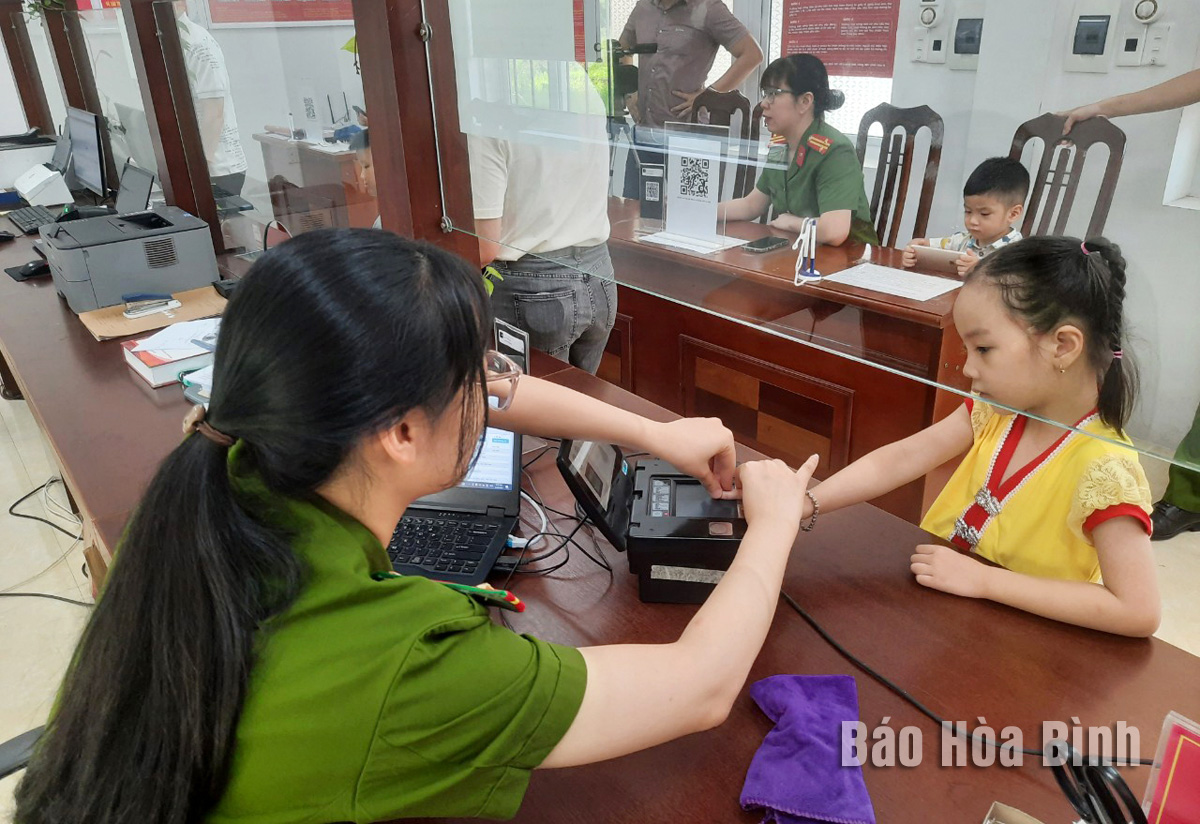
According to the Office of the People’s Committee of Hoa Binh province, Hoa Binh ranked first among the 63 localities across the nation in processing administrative requests online in July by recording 83.08 out of the 100 points, leaping three places from June. The ranking was based on the ratings in the National Public Service Portal at dichvucong.gov.vn.

Since July 1, 2024, the Police Office for Administrative Management of Social Order has enhanced the service quality in receiving dossiers for issuing ID cards following the new ID Law.
Specifically, the locality scored 15.7 out
of the total of 18 points in openness and transparent criteria. The province
harmonised 17,675 dossiers on the National Public Service Portal.
At the same time, Hoa Binh recorded 18.7
out of the total of 20 points in terms of dossier processing progress, up 0.1
points over June. Meanwhile, its scores in public service provision procedures
reached 7.9 out of the 12 points, an increase of 0.4 points compared to June.
The rate of online application submission in Hoa Binh reached 67.54% in July.
Hoa Binh processed 99.3% of public service
requests on time. It earned 9 out of the 10 points in online payment. The rate
of administrative procedures requiring financial obligations provided on the
National Public Service Portal was 352, reaching 87.56%. Online payment was
applied for 13,392 dossiers, reaching 86.76% of the total number of dossiers.
Particularly, Hoa Binh scored 18 out of the
18 points in the level of satisfaction, maintaining the result in June. Its
scores in digitalising dossiers were 13.8 out of the 22 points, up 0.2 points
compared to June.
The Standing Board of the Hoa Binh provincial Party Committee has agreed in principle on a proposal by the Standing Board of the Party Committee of Hoa Binh city to gather feedback on the city’s 1:2000 zoning plan, which forms part of its broader urban development strategy.
Hoa Binh province has made notable progress in public administration reform and digital government development, with the satisfaction index among citizens and businesses reaching over 84%, according to recent government evaluations.
Thanks to great efforts by local authorities in recent times, the governance and public administration performance of Mai Chau district has been significantly improved.
In the afternoon of June 6, the Party Committee, the People's Council, the People's Committee and the Fatherland Front of Lac Son district solemnly held a meeting to celebrate the 139th anniversary of the district's founding (1886–2025) and the 79th anniversary of the establishment of the district's Party Committee (1946–2025). There was the attendance of Mr. Bui Van Thang, the Vice Chairman of the Provincial People's Council; Mr. Quach Tat Liem, the Vice Chairman of the Provincial People's Committee; Ms. Dang Bich Ngoc, the Deputy Head of the National Assembly Delegation of the province; as well as the former leaders of the province and district through various periods, who are the natives of the district.
Implementing the Politburo’s Resolution No. 57-NQ/TW on breakthroughs in science – technology, innovation, and digital transformation is a golden opportunity for the northern mountainous province of Hoa Binh to renew growth model, improve competitive edge and shorten digital gap.
Resolution 57-NQ/TW, issued by the Politburo on December 22, 2024, identifies sci-tech, innovation, and digital transformation as strategic breakthroughs to build a developed and prosperous nation. In Hoa Binh province, this spirit is not just a slogan, it’s being put into action through concrete initiatives that form a "new development triangle”: digital citizenship, digital economy, and digital administration.



